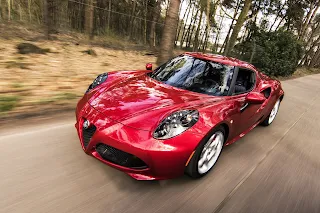Earlier to have a car means you are considered to be in a group of elite society. Feeling so proud! As we tend to merge in a modern world with technological advancements the car becomes necessities of life. Ubiquitous, you can see most of the persons have their own personal cars. It is now the requirement not any more upper crust.
The journey of car has witnessed and seen unfolding from
diesel to petrol, then petrol to Compressed Natural Gas (CNG) and now the modern
electric car. Yes, electric car is getting prominence and soon one can see
large number of electric vehicles will ply on the road.
Generally, an electric car is driven by one or more
electric motors by using stored energy in rechargeable batteries. While in India, the electric cars will be
launched soon, there is already presentiment about these cars – its look and
how swiftly we can change the gear, safety, comfort wise or it is worth to buy!
Though people are somehow moonstruck to drive electric
cars yet they have to wait. List of the electric cars are coming to India
market soon.
Most of the major car brands are engaged with Electric Vehicle (EV), and they are about to launch new models featuring state-of-the-art technologies. According to auto experts and industry research suggest that 2025 will be crucial and upend point of electric car. Those who are experts in Green Energy presumed that there is a possibility of widespread acceptance of electric vehicles instead of petrol-fuelled cars.
As
per the Bloomberg New Energy
Finance forecast, “Electric cars will comprise one-third of cars worldwide by
2040”.
There is already rapture about electric car and it
grabs the attention of everybody but still there are some myths about its
capabilities especially how it works during stormy weather, rainy season, etc.
Myth 1: Charging an Electric Vehicle in rainy season
is risky
Reality: Fear is quite obvious to charge an EV during
rainy season because water conducts electricity. EV are specifically designed with standard safety norms and it is weatherproof for which the car and human
are protected from electrical shock.
Myth
2: Using additional components affects the range of the EV
Reality: It
is presumed that accessory components [air conditioner, lights]
does affect and eat a lot of charges.
But this is not the case, even in monsoon windscreen
wipers, head/tail lamps, have no adverse effect and specially electrical
consumptions from these ancillaries is already factored in while designing the
battery pack.
Myth 3: Battery recycle is a bit problem
Reality: The batteries for EV is
quite new and made of lithium-ion, will add a life well beyond the
vehicle. Generally, EV batteries are lasting
long than the vehicle and their recycle rate is around 98 per cent.
Myth 4: EV gets damaged in water down areas
Reality: Since EV has a
protection system of Ingress Protection [IP], which saves two elements namely
water and dust. Generally, a rating system is based in an electric vehicle, i.e.
[IP65] or [IP67]. Higher the number, the
better is the protection against these two elements.
Myth 5: During an accident, EVs are not safe because
batteries can be an additional
danger
Reality: The batteries have special precautions. Since it includes the collision detectors,
which has the ability to prevision damage to the battery, thereby disconnecting
the battery’s fuses; cooling systems to avoid overheating. The battery comes in
a protective cell made of steel and aluminium.
Myth 6:
EVs are more prone to damage in case of lightning
Reality: Lightning reflects with
thunderstorm i.e. untimely occurrences with monsoon and people do fear, it
could have an impact on electric vehicle.
But one solely depends on Faraday Effect, means during lightning the
current is actually pass down safely into the ground because of the
electromagnetic effects on the skin of the vehicle. In fact, the electric cars
are less susceptible to any damages in case of lightning strikes.
After a brief rundown of EVs, is
someone interested to own a car, then the obvious question comes about its
advantages and disadvantages?
There are some noticeable advantages of owning an
electric vehicle:
Ø
Electric cars are better for
environment.
Ø
They are reticent than gas
vehicles.
Ø
Credit of tax available for
owners of electric cars.
Ø
In some places special highway
lane for electric cars.
Ø
Maintenance is quite low and
less expensive.
Ø
It can be a renewable resource,
gasoline cannot.
There are a few disadvantages
including:
Ø
Battery recharging takes time.
Ø
Model options are limited.
Ø
To find a charging stations at
times difficult.
Ø
In general, it is more expensive
than gas-powered cars.
Ø
They have shorter range than
gas-powered cars.
The most pertinent questions are
about public charging stations to help the electric car drivers to manage their daily driving
demands and also taking into consideration of charging time -- this needs to be
sorted out as and when the new models of electric cars are launched.
Though weak power and slow charging times are the main
barricades and most of the researchers worldwide are working upon it. Here, researchers [a team of South Korean] have
developed charger and battery which can be faster and long lasting that can
enliven electric vehicles up to 90 per cent just in six minutes.
With the passage of time, the
more and more users’ know-how about an electric vehicle, the likeliness of
misconceptions and myths that surrounds one’s mind will somehow decrease.






No comments:
Post a Comment